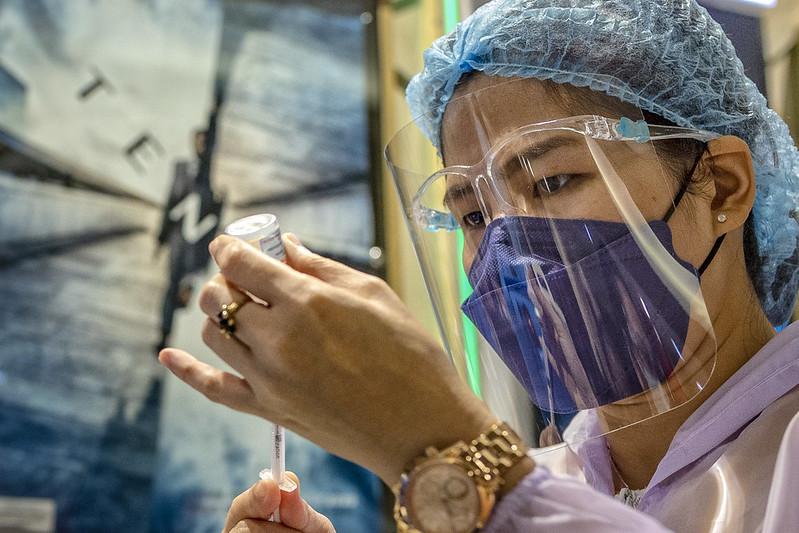The Food and Drug Administration (FDA) vaccine advisory group today recommended switching to a monovalent (one-strain) vaccine containing the Omicron XBB subvariant for immunization in the fall.
The measure passed unanimously on a 21-to-0 vote.
The group heard from scientists from three vaccine companies, as well as from those at the FDA. Overall, data suggest waning immunity of the current bivalent (two-strain) vaccine to circulating XBB lineage strains. Also, data suggest that including the original Wuhan strain is unlikely to enhance response to the current variants.
Momentum builds for XBB.1.5 as the strain
The group also discussed—but did not vote on—what specific XBB lineage to include in the vaccine. Currently in the United States, XBB.1.5 proportions are declining, while others such as XBB.1.16 and XBB.2.3 are rising. The companies have evaluated XBB.1.5 versions, but some are also in the early stages of testing an XBB.1.16 version.
Over the past few months, global health groups have weighed in on the switch, and in May, the World Health Organization recommended a shift to either XBB.1.5 or XBB.1.16.
Peter Marks, MD, PhD, director of the FDA's Center for Biologics Evaluation and Research, said the data seem to show that the XBB.1.5 vaccine strain shows good neutralization across different XBB strains, including XBB.2.3. And he said there are practical considerations for harmonizing the strain across all COVID vaccines.
FDA administrators will make the final recommendation, and then Centers for Disease Control and Prevention (CDC) vaccine advisers will weigh in on specific recommendations.
Questions about messaging
VRBPAC members today also raised concerns about vaccine messaging, especially to specific groups, amid changes to the vaccine.
David Kaslow, MD, who directs the FDA's office of vaccines research and review, said efforts are under way to transition to uniform age cutoffs and dose number recommendations. He also said the agency continues to review the need for more frequent doses for other populations. "It's a work in progress," he said.
Though the vote on the switch to a monovalent vaccine was unanimous, the group grappled with several uncertainties, such as whether a focus on a fall vaccine sends unclear messages about SARS-CoV-2 seasonality and similarities to flu.
Some members also worried that a strain selection focusing on fall would preclude more frequent updates to the vaccine if there are major changes to the virus. FDA officials noted practical considerations for vaccine production as one of the reasons for a seasonal vaccine update.
Jerry Weir, PhD, who directs the FDA's division of viral products in its Office of Vaccines Research and Review, said, "I think we will all continue to follow the virus and follow the science to do what's needed."
Aiming for realistic expectations
Another open question is which groups will be recommended to receive the new version of the vaccine.
Paul Offit, MD, professor of pediatrics at the Children's Hospital of Philadelphia, said federal officials need to clarify who would truly benefit from booster dosing. He noted that though some protection from COVID vaccination wanes, unlike flu, some protection remains against severe disease. "We need to explain that to the public."
Bruce Gellin, MD, MPH, a former FDA officials who is now chief of global public health strategy at The Rockefeller Foundation, said the wording of current recommendations is confusing, especially since the world is at an inflection point with recent stepdowns in COVID emergency status. He said it would be useful if agency risk communication experts could evaluate the situation and ensure that federal health officials are sending out the right messages and setting realistic expectations.




















